Once you’re registered and signed up with some Supporting Artiste / ‘extras’ agencies, you will hopefully start to get offers of work. Here’s what to expect and what you can do to help secure work.
Depending on the agency, job offers usually arrive via email, SMS or phone call. A number of agencies I work with will email and text you at roughly the same time but you shouldn’t rely on this.
Many opportunities are sent out to a group of people meeting the production’s requirements on a first-come, first-served basis. Some of these jobs may only have one or two available roles. Others may have more roles but are at short notice. Either way, time is of the essence in this business. If you want to maximise your chances of getting work you need to be quick off the mark with responses.
A tip: if you’re OK with the battery and data usage, get your smartphone to check your email accounts more frequently. Also, if your phone supports it, mark the senders of job offers from the agencies as VIPs / priority senders, so that you can get a special alert when you get an email from them. (You need to have started getting offers to be able to do this, but it’s worth it.)
Assuming you’ve had an email with the offer details, you’ll find some key pieces of information about the opportunity inside the message, including:- Details of the production: a name and brief synopsis of the production is usually provided, although sometimes you might just see a working title especially when there is mega-secrecy surrounding the production
- The role: you’ll usually see the name of a role/character, sometimes followed by details of what you’ll be expected to do. There might be specialist skills involved, so read it closely.
- Person requirements: details of who they’re looking for; perhaps a specific gender, age group, height, hair length, specialist skills etc. Don’t assume the agency has only emailed people who already meet the requirements – sometimes time is just too tight to do all the pre-filtering.
- When and where: think carefully about taking the job based on where it’s taking place and the timings. If a call time (start time) isn’t stated you should assume an early start – perhaps 7am or 8am – and a long day. Productions want to get the best value from their cast (including you!), crew, location and equipment so they want to get the best out of every day. Productions need you to be punctual and resilient; you might be in a background role but if you’ve been booked, you’re needed from beginning to end.
- Don’t apply if…: look out for anything else which says why you shouldn’t apply for this particular job. For example, if this is a role in a TV series or film and you have already played a different role in the same production, sometimes you’re not allowed to play another one. The agency doesn’t know what you’ve worked on through other agencies and they might not have time to look back through their own history – that’s just the way this fast-moving industry is: you have to do some of the thinking.
- How to reply: there will always be details of how to confirm your availability (or unavailablity, as the case may be). The agencies which have embraced a full online system will give you a link to click on which takes you to a quick confirmation page, so it only takes a couple of clicks (or taps) to tell them you’re available. Some ask you to confirm if you’re not available – do it, because many agencies will look out for those who don’t engage with them and you might not be invited back for the next registration period. Unfortunately the same might be true if you say no lots of times, but you knew you had to have really good availability when you signed up, right?
The next step – the pencil
So, you’ve confirmed your availability for a job opportunity as an SA. With most agencies, from that moment on you are “pencilled” for that job. That means that you have to keep yourself completely available for those dates/times and not making any other plans, until you’re told that you’ve got the job, or not. If not, you can “release the pencil” and you’re free to make other arrangements.
While you’re pencilled, there will be various stages of back-and-forth between the agency and the production, going on “behind the scenes” from your point of view. In most cases this will include the agency sending photos and profiles to the production for consideration.
A shooting schedule for a day might not be completely finalised until the night before a job that you’re pencilled for, so you might not hear back until quite close to the job. That’s not always the case though; I’ve been booked weeks in advance before.
There are a small number of jobs and agencies where you are booked at the last minute by phone and if you accept, you skip any pencil steps and move straight to being booked. That is of course great, but not the norm.
The heavy pencil
Some SA agencies have the concept of a ‘heavy pencil’ where – in their view – the job is very likely to go ahead as planned and you are very likely to be a part of it. However, as you need to keep the time free whatever the weight of this metaphorical pencil, it’s not really different from being just ‘pencilled’.
Not booked
If you didn’t get the job, please don’t worry. It could be that there were more applicants than available places, it could be that you didn’t have the right ‘look’ in the production’s eyes (see an earlier post for pre-warning that you need a very thick skin in this industry), the production schedule might have changed or the whole production might have been cancelled or postponed. Keep applying.
Booked
If the production confirms to the agency that they definitely need you, that means you will be booked in and confirmed for the job – congratulations! You should then follow any instructions in your confirmation email/SMS/call very carefully. Look out for an instruction to confirm you’ve read the confirmation – they still need to know you’re accepting! Once booked, you will almost certainly be working on that day, but things can change even after this stage.
What happens next? Well, that’s for another post.




